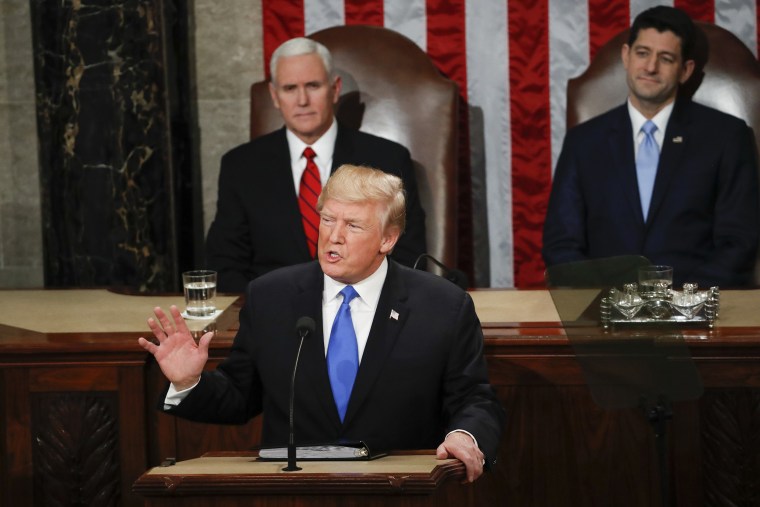It may not have been the most newsworthy moment of Donald Trump's interview with George Stephanopoulos, but I found it interesting when the ABC News anchor asked the president what he considers the most difficult part of his job.
TRUMP: The hardest is usually the Congress, I find Congress more difficult than frankly than many of the foreign leaders.STEPHANOPOULOS: Why is that?TRUMP: Because they have their own views, you never know exactly but they have their own views and--STEPHANOPOULOS: But that's democracy, isn't it?TRUMP: Yeah, I guess it is, but...
At that point, the president began complaining about U.S. border policy and his frustrations that congressional Democrats won't simply do what he's told them to do. When Stephanopoulos suggested that he could strike a deal making some concessions as part of a give-and-take process, the Republican replied, "The things that we're talking about you shouldn't have to give."
The comments offered a peek behind the curtain, offering insights into why Trump has struggled so dramatically to strike deals with the co-equal branch of government: those rascally members of Congress insist on having "their own views."
The nerve of some people.
At a certain level, it makes sense that Trump finds it easier to work with foreign leaders than elected officials from his own country. Not only do most American presidents find foreign policy work more satisfying, but there's an element of common sense at play: trying to reach solutions with one person is necessarily going to be easier than trying to navigate through the interests of hundreds of people. (The U.S. Congress has 535 voting members.)
But Trump's assessment is emblematic of how poorly suited he is to his unique position. The Republican simply wants to have his way. When others "have their own views," it's annoying. When lawmakers expect some kind of compromise to address a problem, this president doesn't see it as a staple of policymaking in a democracy, he sees them looking for concessions he "shouldn't have to give."
Trump doesn't want to negotiate deals; he wants to give orders.
This isn't quite what the American electorate was promised. Not long before launching his presidential campaign, Trump identified what he saw as his greatest strength. "Deals are my art form," the Republican boasted. "Other people paint beautifully or write poetry. I like making deals, preferably big deals. That's how I get my kicks." It's partly why he paid a ghost-writer to help write a book called, "The Art of the Deal."
Candidate Trump even assured voters he knew exactly how to get important legislation through Capitol Hill. In January 2016, he explained, "You know, it's supposed to be negotiated. You're supposed to cajole, get people in a room, you have Republicans, Democrats, you're supposed to get together and pass a law. [Barack Obama] doesn't want to do that because it's too much work. So he doesn't want to work too hard. He wants to go back and play golf."
The irony was less obvious at the time.
Three years later, we've seen Trump try to apply his vaunted negotiating skills to the American presidency. The man who loves deal-making and "getting people in a room" has since discovered that elected officials sometimes "have their own views."
The president concluded the exchange by insisting that if Republicans take the House majority, "we will have things done like never before." That might be more compelling if we collectively forgot everything we saw in 2017 and 2018.
